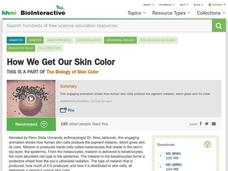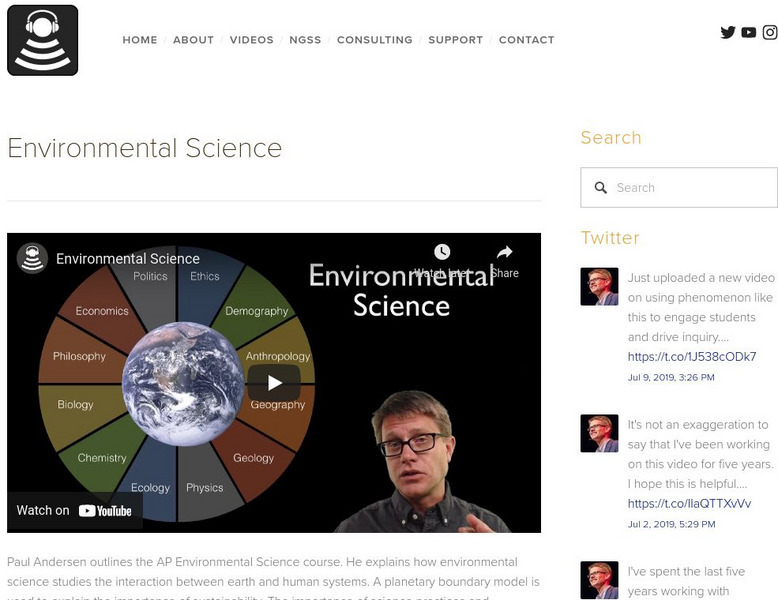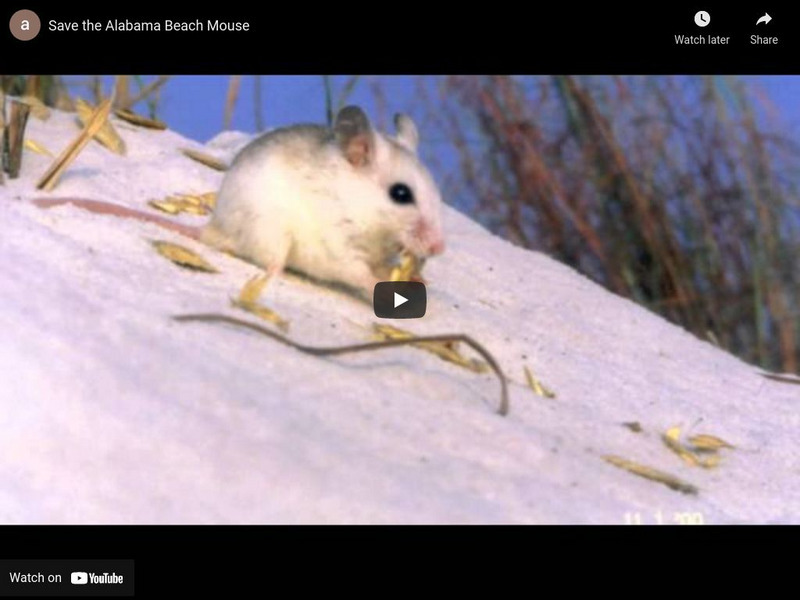Howard Hughes Medical Institute
How We Get Our Skin Color
Is our skin color determined only by genetics? Explore skin science through a video and related interactive. Young biologists discover the cells of the epidermis, how melanin is made, and the factors that influence the outward appearance...
Educreations
Le Chatelier's Principle
Equilibrium reactions are able to reach a steady state of products and reactants, but what happens when this careful balance is disturbed? With the help of this instructional video, young chemists learn to apply Le Chatelier's...
Howard Hughes Medical Institute
The Making of the Fittest: Got Lactase? The Co-evolution of Genes and Culture
Got milk? Only two cultures have had it long enough to develop the tolerance of lactose as an adult. Learn how the responsible genes evolved along with the cultures that have been consuming milk. This rich film is supplied with a few...
Howard Hughes Medical Institute
Dengue Virus Life Cycle
Dengue Virus leads to the deaths of around 25,000 people, mostly children, every year. Scientists understand how the virus gets into cells and replicates, but they still struggle to prevent it. Curious scholars view an animation of the...
Curated OER
Sex-Linked Traits
Again, the basis for trait inheritance and the impact of alleles in phenotypes was covered in previous videos. This presentation focuses on gender and the likelihood of traits if they are sex-linked. Sal tells a great anecdote about...
Bozeman Science
Bozeman Science: Environmental Science
Paul Andersen outlines the AP Environmental Science course through a video, concept map, and slideshow. He explains how environmental science studies the interaction between earth and human systems. A planetary boundary model is used to...
Bozeman Science
Bozeman Science: Environmental Economics
Paul Andersen explains how economic models, like supply and demand, can be applied to environmental systems. The market forces will not protect environmental services until proper valuation and externalities are established. The wealth...
Bozeman Science
Bozeman Science: Geology
Paul Andersen explains how rock is formed and changed on the planet. The video begins with a brief description of rocks, minerals, and the rock cycle. Plate tectonics is used to describe structure near plate boundaries. Hot spots and...
Bozeman Science
Bozeman Science: Environmental Systems
Paul Andersen explains how matter and energy are conserved within the Earth's system. Matter is a closed system and energy is open to the surroundings. In natural systems steady state is maintained through feedback loops but can be...
Other
Save the Alabama Beach Mouse
An AP Environmental Science Project on the endangered Alabama Beach Mouse. [4:33]









